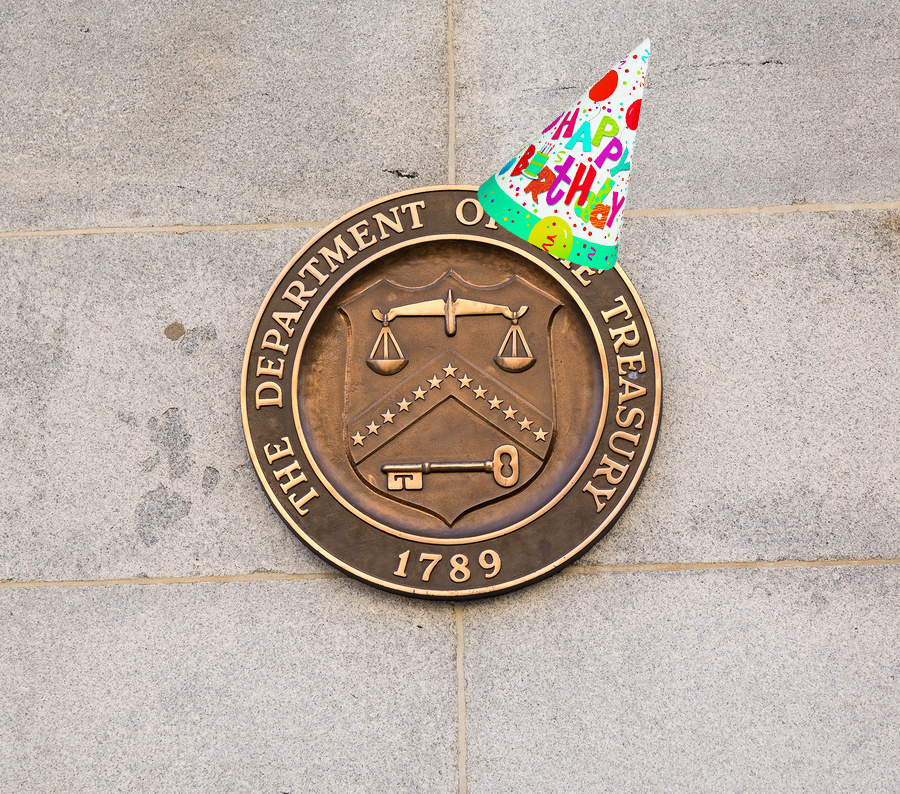A Birthday Present From The U.S. Treasury: Fed’s Announce An Investigation Into Climate Risks in Insurance
“Over the past 30 years, the incidence of natural disasters has dramatically increased and the actual and future potential cost to the economy has skyrocketed. We are now in a situation where climate change is an existential risk to our future economy and way of life.”
Janet Yellen, United States Treasury Secretary, August 31, 2021
Yesterday was my 22nd birthday and I want to thank the United State Treasury for a bit of a birthday gift in the form of the news that the U.S. Department of Treasury and its Federal Insurance Office have begun investigating the financial risks our society faces from climate change. That might not sound like an exciting birthday present but it sure could be an important one in our fight to solving the biggest issue, and I dare say risk, mankind will face in my lifetime.
My family has been in the insurance and risk management business for over 100 years dating to my grandfather’s arrival in Miami in 1910. Between that heritage and what I’ve learned over the years within the climate world, I’ve come to believe that the financial industry will shape climate policy in our futures in important ways.
Insurers are already being forced to consider what they will and will not cover much less the growing risks that our society faces from more devastating and common wildfires, monster hurricanes, and other catastrophes that earth’s rising temperatures are thrusting upon all of us as a result of mankind’s antiquated use of fossil fuels, such as petroleum. Insurance companies will surely continue to increase their prices to cover this increasing risk, require mitigation measures that will add to the cost of owning one’s home, and, one day soon, simply no longer offer coverage in areas where the risk becomes unprofitable to protect.
Likewise, mortgage lenders, many of whom traditionally offer loans with 15 or 30 year durations, must now consider the future of the asset they use as collateral for their loans, typically one’s home or business, in a world where seas are rising in places like South Florida. If you can’t get to your home or use it or, for that matter, insure it because insurers have deemed the risk too costly or impossible to bear then the climate oriented risk will impair lenders, realtors, developers, and an entire infrastructure of businesses that support where people work and live, much less the tax base these people and places currently generate for governments.
So, yes, insurers and lenders are going to dramatically shape the future of where we live and work and while the current real estate market is booming there is an end in sight. And that end comes in the form of our climate crisis that will lead to one’s flood, fire, and/or windstorm coverage going from increasingly expensive, as is the case today, to simply unavailable. That is unless we address the core problem (our use of fossil fuels) right away.
And the risks that we are talking about are truly significant. Within the FIO’s information request they refer to a 2020 report by the Financial Stability Board (FSB) about three possible climate-related risk categories including:
- Physical risks are “the possibility that the economic costs of the increasing severity and frequency of climate-change related extreme weather events, as well as more gradual changes in climate, might erode the value of financial assets, and/or increase liabilities.”
- Transition risks can “arise from the technological, market, and policy changes needed to adjust to a low carbon economy and their effects on the value of financial assets and liabilities. Depending on the nature, speed, and focus of these changes, transition risks may pose varying levels of financial and reputational risk to organizations.”
- Liability risks may “arise when parties are held liable for losses related to environmental damage that may have been caused by their actions or omissions.”
The FSB’s report considers how climate risks might impact our world’s global financial system’s stability as well as how the risks we face will continue to evolve and grow from what it called “climate-related shocks.” Now if “climate-related shocks” is not a good title for a future blog post I don’t know what is, but all of this illustrates how seriously the serious world of finance is taking the risks industry and investors face from the very real impact of our climate change crisis.
With these things in mind the Federal Insurance Office (FIO) plans to begin by focusing on three areas of our climate crisis:
- Assessing climate-related issues or gaps in the supervision and regulation of insurers, including their potential impacts on U.S. financial stability;
- Assessing the potential for major disruptions of private insurance coverage in U.S. markets that are particularly vulnerable to climate change impacts, as well as facilitating mitigation and resilience for disasters; and
- Increasing FIO’s engagement on climate-related issues and leveraging the insurance sector’s ability to help achieve climate-related goals.
You can read an article from the Insurance Journal about what the Treasury is doing as well as link to the actual Federal Register so as to comment about any number of insurance and risk related concerns here. Comments are possible over the next 75 days so I’d invite anyone that’s concerned about the impact of the climate crisis to things like the availability or affordability of insurance or a loan to make your voice heard.
